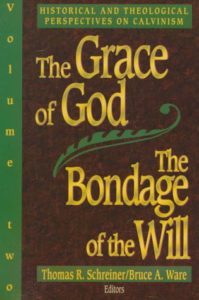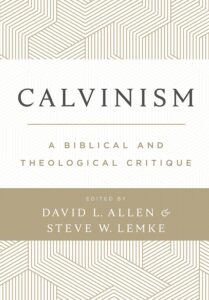
Leighton Flowers begins in his chapter, “A Critique of Unconditional Election,” published in the latest critique on Calvinism by David Allen and Steve Lemke, Calvinism: A Biblical and Theological Critique by emphasising the contrast between “the biblical choices of God which are not conditioned upon the merits of those chosen” with the Calvinist “unbiblical principle of God secret making arbitrary choices which unilaterally fixes the eternal destiny of every individual.”
A clear distinction must be drawn between the biblical choices of God, which are not conditioned upon the merits of those chosen, versus the Calvinist system, which logically entails the unbiblical principle that God secretly made arbitrary [emphasis original] choices before the foundation of the world, unilaterally fixing the eternal destiny of every individual. (CBTC 51)
Flowers concludes, I believe this doctrine, when logically and consistently applied, can be dangerous for the believer and the overall mission of the church and thus must be firmly refuted and soundly rejected as unbiblical teaching.” (CBTC 68) Continue reading “Does God Act Arbitrarily? Leighton Flowers Stigmatizes Calvinism to Win Debate”
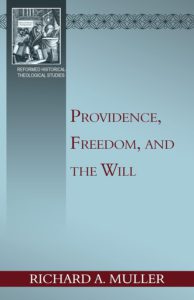 Some young Calvinists I know are not sure how to respond to their friends who reject the Calvinist doctrine of God’s foreknowledge and predestination with a self-assured declaration, “No thanks, Calvinist predestination is theologically and logically problematic. I prefer Luis de Molina’s teaching of the “scientia media or middle knowledge as it is more coherent and persuasive.” These young Calvinists become unsettled and feel intimidated by the unfamiliar terminology thrown at them. However, a simple question would dispel the Molinist’s aura of sophistication. “As a Molinist, are you then a Jesuit or an Arminian? Since you are Protestant, I conclude that you are basically rebranding old-time Arminianism by using exotic language, granted that the idea of a divine middle knowledge is at the heart and soul of the Arminian view.”
Some young Calvinists I know are not sure how to respond to their friends who reject the Calvinist doctrine of God’s foreknowledge and predestination with a self-assured declaration, “No thanks, Calvinist predestination is theologically and logically problematic. I prefer Luis de Molina’s teaching of the “scientia media or middle knowledge as it is more coherent and persuasive.” These young Calvinists become unsettled and feel intimidated by the unfamiliar terminology thrown at them. However, a simple question would dispel the Molinist’s aura of sophistication. “As a Molinist, are you then a Jesuit or an Arminian? Since you are Protestant, I conclude that you are basically rebranding old-time Arminianism by using exotic language, granted that the idea of a divine middle knowledge is at the heart and soul of the Arminian view.” What is Biblicism?
What is Biblicism?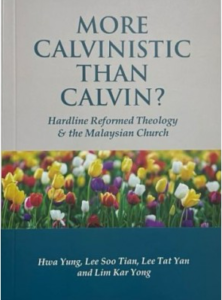 The book, More Calvinistic Than Calvin? (MCTC) was published in 2023 by a team of local seminary lecturers under the leadership of Bishop Hwa Yung. [The book is available from Canaanland Book Store]. The aim of the book is to refute what it describes as “hardline Calvinism”, and to counter the influence of “hardline Calvinism” among college students in Malaysia.
The book, More Calvinistic Than Calvin? (MCTC) was published in 2023 by a team of local seminary lecturers under the leadership of Bishop Hwa Yung. [The book is available from Canaanland Book Store]. The aim of the book is to refute what it describes as “hardline Calvinism”, and to counter the influence of “hardline Calvinism” among college students in Malaysia.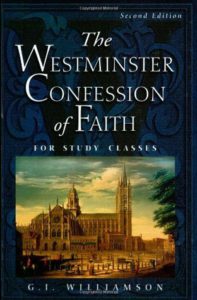
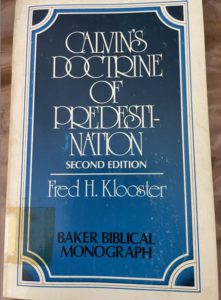 Calvin’s doctrine of predestination (election and reprobation) is not a product of philosophical deduction. It is a result of Calvin’s exegesis of Scripture. Calvin gives two concise definitions of predestination:
Calvin’s doctrine of predestination (election and reprobation) is not a product of philosophical deduction. It is a result of Calvin’s exegesis of Scripture. Calvin gives two concise definitions of predestination: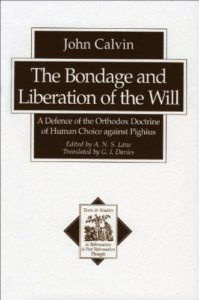
 In my earlier post,
In my earlier post, 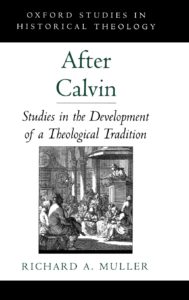 One of the problems with the “Calvin against Calvinists” scholarship is that it is based on questionable theological premises. This includes the claim that there is conflict between the predominantly scriptural and Christocentric theology of Calvin and the theology of later Calvinists or Reformed Scholasticism whose application of Aristotelian philosophy and speculative formulation of the will of God resulted in a doctrine of God which is rationalistic and predestinarian.
One of the problems with the “Calvin against Calvinists” scholarship is that it is based on questionable theological premises. This includes the claim that there is conflict between the predominantly scriptural and Christocentric theology of Calvin and the theology of later Calvinists or Reformed Scholasticism whose application of Aristotelian philosophy and speculative formulation of the will of God resulted in a doctrine of God which is rationalistic and predestinarian.